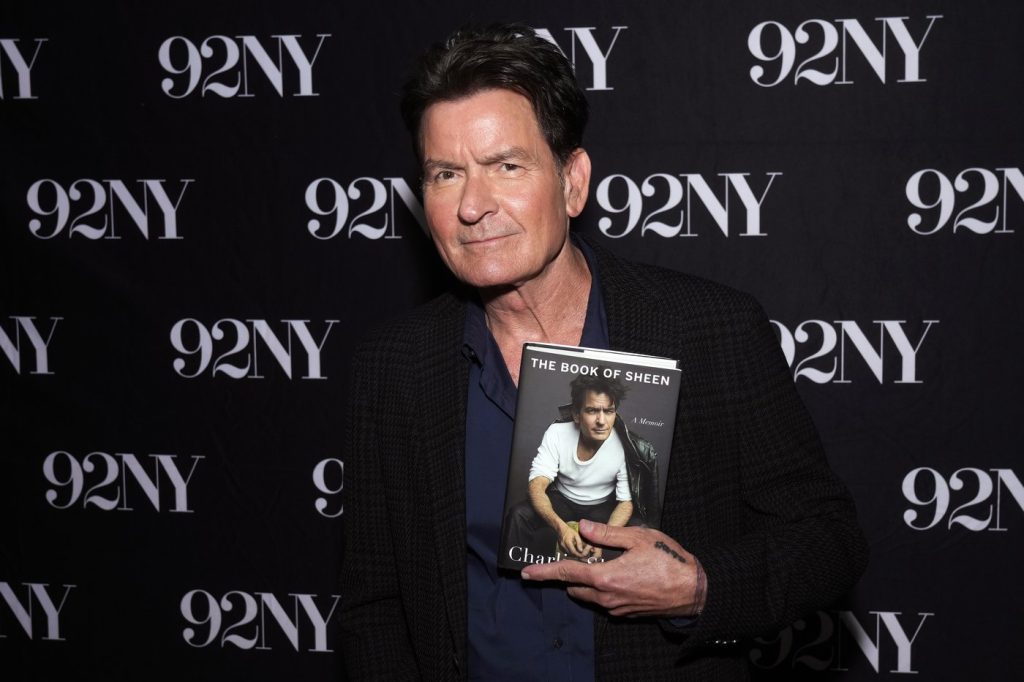Charlie Sheen reflected on his journey through fatherhood and sobriety at an event held at the 92nd Street Y in New York. During a discussion with actor and writer David Duchovny, he shared that eight years of sobriety transformed his life, emphasizing the new responsibilities he embraced as a father. Sheen revealed that once he "finally put down the bottle," his children began to visit him at home, leading to a profound shift in his daily existence.
Sheen's candid struggle with addiction has been well-documented throughout his long career in Hollywood. In his memoir, “The Book of Sheen,” which is set to be released on a Tuesday, he delves into the complex layers of his life, including his battle with substance abuse, legal issues, and an HIV diagnosis. The actor candidly described the years of self-reflection necessary to write the memoir, highlighting its significance in grappling with his past behaviors. Sheen's turbulent experiences have often played out under public scrutiny, but he aims to address them with honesty and clarity.
Growing up in the film industry, Sheen took an early interest in filmmaking, creating home movies with friends and family. His breakout roles in iconic films like "Platoon" and "Wall Street" propelled him to fame, but they also coincided with decades of personal turmoil. During the event, he expressed that despite the adversities he faced, he perceives himself as "a good guy" who made mistakes and underscores the importance of owning those actions for personal growth.
During the conversation, Duchovny praised Sheen's memoir, noting its gentle tone and absence of vindictiveness. He appreciated Sheen's willingness to be kind to both himself and others throughout his narrative. The memoir chronicles pivotal moments in Sheen's life, from his dramatic near-death experience at birth in 1965 to the significant decision to achieve sobriety in 2017. Notably, Sheen’s unique writing style includes intentionally misspelling certain words to reflect how they appear in his mind, exemplified by his spelling of "dude" as "dood."
Sheen shared the inspiration he drew from the narration style of “Apocalypse Now,” the 1979 film his father, Martin Sheen, starred in. He expressed a desire to create a reading experience that felt intimate, as though readers were joining him at a dinner party sharing his life story. The latter half of the memoir focuses on Sheen's addiction, emphasizing the intense connections he had with substances like cocaine and the challenges he faced with alcohol, which he recognized as particularly problematic, particularly given its effects on his stutter during acting.
On the prospect of returning to acting, Sheen conveyed uncertainty, stating that writing the memoir had been both the most challenging and rewarding project he has undertaken. He reflected on the unique freedom afforded by writing, which does not require external approval, a stark contrast to the pressures of acting. Sheen suggested that he might explore writing future projects in which he could also perform.
In addition to his memoir, Sheen’s upcoming two-part Netflix documentary titled “aka Charlie Sheen” is set to release on Wednesday. This documentary features clips of his childhood home movies, which were made with friends, including Sean and Chris Penn, in Malibu, California. These films typically revolved around simple themes involving crime and revenge and were shot using vintage cameras with props from his father's past films.
Sheen remarked that the documentary provided a perfect opportunity to showcase these nostalgic films to a wider audience. Overall, both his memoir and documentary seem poised to offer insight into Sheen’s life journey, marked by creativity, struggles, and a newfound commitment to fatherhood and sobriety.











